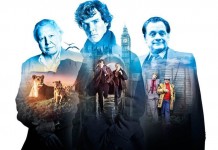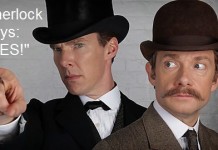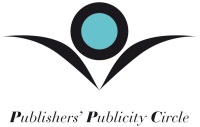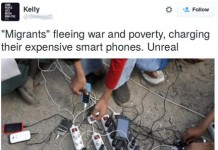That’s the title of an article on TorrentFreak about how the big news media will sue little sites for copyright infringement, but will happily infringe, themselves, knowing that the little guy can’t sue them. Here’s part of the article:
When it comes to copyright, we’re constantly hearing how the big companies are spending untold amount of money to ‘create’ content, only for it to be ‘stolen’ by people downloading it. Less often we hear of the reverse; big companies infringing the copyright of regular people. But it’s more common than you might think.
Let’s take a look at two of these stories that surfaced recently, starting with the BBC.
When the BBC reported on the riots in London, it frequently used pictures that were shared by Twitter users witnessing the events. This wouldn’t be that bad as the BBC would at least credit the people who took the pictures. Yet, in its reporting, the BBC completely failed to attribute any of the images it used, instead attributing them to Twitter.
When a complaint was made, the first response back included the following outrageous statement:
I understand you were unhappy that pictures from Twitter are used on BBC programmes as you feel it may be a breach of copyright. Twitter is a social network platform which is available to most people who have a computer and therefore any content on it is not subject to the same copyright laws as it is already in the public domain. The BBC is aware of copyright issues and is careful to abide by these laws. (emphasis added)
Everyone reading this knows that to be untrue and the BBC did too, as Chris Hamilton (BBC News Social Media Editor) later admitted.
It’s not the position of BBC News, he said, adding that that the BBC tries to clear photos before using them but if there are time constraints that may not be possible. Unfortunately, UK law doesn’t allow fair dealing exceptions for this at present. So time constraints or not, it’s still a copyright violation.
And the BBC is not the only major news outfit to bend the copyright rules this month ….


































In the middle ages the Duke or Baron could descend at will on peasants and serfs and bring down the iron fist of the law. The peasants, of course, had absolutely no ability to bring legal action against the nobility. We now have a new form of feudalism. The rule of the Multinational Corporation. They own the press, they own the politicians, they own the police, they own the lawyers and the judges. They can descend on us, the poor citizens, with their army of lawyers. But we are powerless to fight back. This sounds over the top. But, sadly, it’s not. Our Supreme Court is now packed with former Corporate Lawyers and consistently rule in ways that increase the power of the Corporation and decrease the power of the individual.
We shouldn’t forget that in the case of the BBC, we’re not actually dealing with “big companies” (above) or “multinational corporations” (Binko’s comment). We’re dealing with what has always been an arm of the British government. European elites have never trusted democracy, so when radio broadcasting developed, they made sure that the government, meaning they, ran it. The people weren’t to be trusted to have their own voices. That difference is one reason why U.S. laws much more closely match public opinion than they do in Europe. Except for Italy, Europeans favor capital punishment by almost the same percentages as people do in the U.S. It’s the European elite, since their cooperation with their Nazi overlords, that doesn’t want even mass killing to be punished by execution. And in the case of the BBC, it is virtually impossible not to be taxed to support this propaganda machine. In the UK, laws (backed up by spooky vans with radio scanning equipment) force those who own television sets to pay the BBC a license fee, even if they never watch BBC. That’s not a privilege that ABC, CBS, FOX, NBC or any other giant broadcasting company in this country has. Yes, big companies often do think that laws are for other people. The now defunct Google Book Settlement is an example. But despite their billions, Google hasn’t be able to do what they intended. I was one of seven authors who challenged them in NY court and got a critical three month delay that resulted in their defeat. Nor is that my only win in court as a little guy (a one-man publishing house). I also fought in Seattle federal court what is perhaps the second largest literary estate in the English-speaking world (Tolkien) and won, successfully publishing my Lord of the Rings chronology, Untangling Tolkien. This anger is misplaced. The BBC is best considered as a socialist entity. If you want to get mad a some vague entity, get made at government. It thinks it can defy copyright laws not just because it is big, but because it is the government. Nor is it alone in this. You find even worst misbehaviors by our federal, state and local agencies, misbehaviors far worse that what giant corporations do. I live in Seattle, but I don’t fret that some mixup at Boeing security is going to result in a misplaced drug raid that has a SWAT team kicking down my door and shooting me in the darkness because some guy thought my cell phone was a gun. I worry about a government agency, federal, state or local doing that because they regularly do precisely that. And that gross abuse of power is true almost anywhere you live in this country. I work with someone who’s son was murdered by LA cops in an incident so absurd, LA’s lawyers didn’t even try to claim the shooting made any sense.